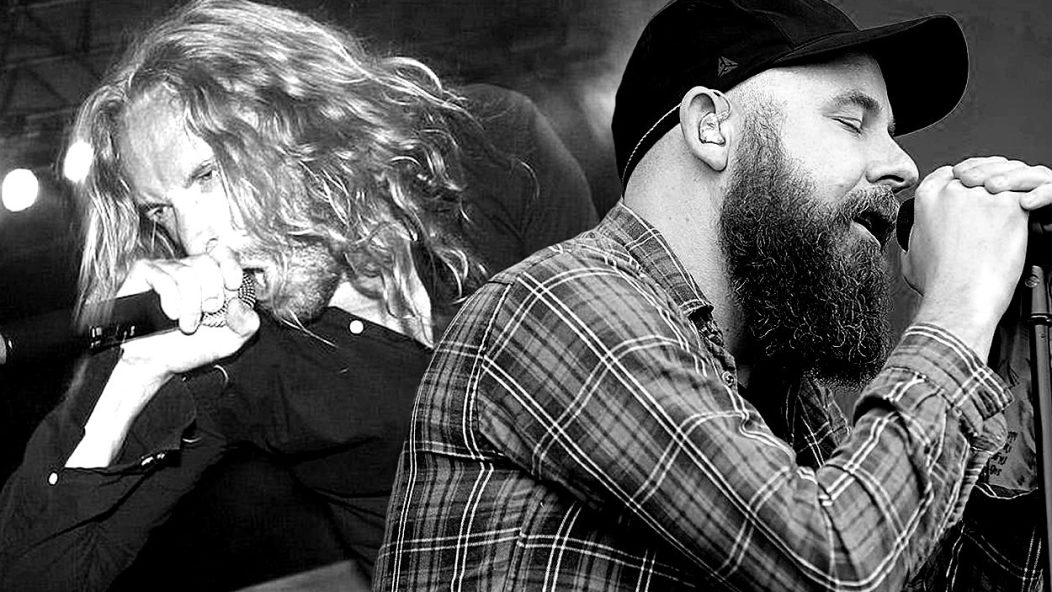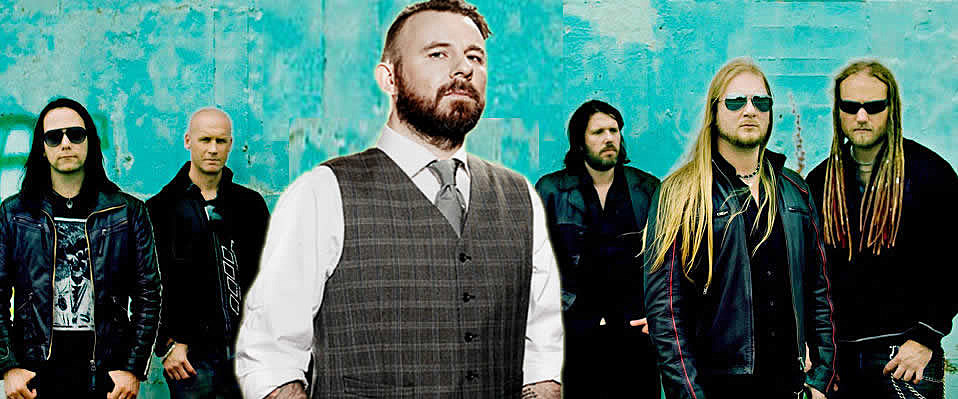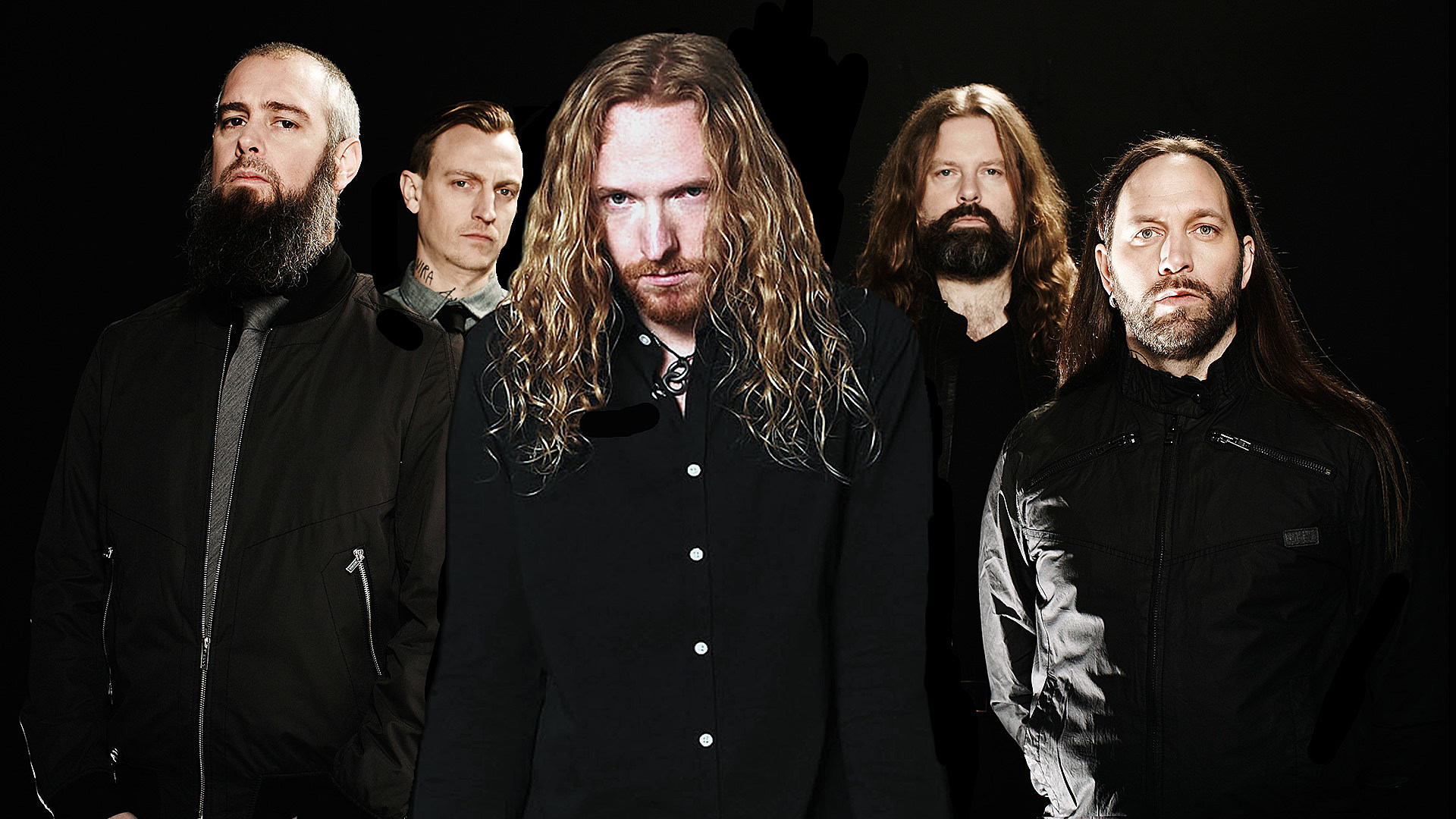
What If In Flames & Dark Tranquillity Never Swapped Singers?
…
Every local music scene is rife with creative inbreeding. When you get right down to it, most scenes are just a collection of 15 or so musicians orbiting a small collection of profoundly overworked drummers who get rearranged into as many combinations as their schedules will allow. Usually, by the time a scene’s biggest names breakthrough to an international stage, the lineups calcify slightly — but traces of their intertwined past aren’t hard to suss out.
Take for example, In Flames and Dark Tranquillity, two of the biggest names to emerge from the Gothenburg melodic death metal scene of the 1990s. Despite taking substantially different paths in their careers, the two bands will always be linked by their singers, Mikael Stanne of Dark Tranquillity and Anders Friden of In Flames. Oddly enough, on each band’s debut full length, these two singers performed for the other band, with Stanne singing on In Flames’ Lunar Strain and Friden handling lead vocals on Dark Tranquillity’s Skydancer.
Beyond being a neat piece of metal trivia, this strange lineup swap presents a fun thought experiment: what if Mikael Stanne had stayed in In Flames and Anders Friden had stayed in Dark Tranquillity?
Before we tease out the results of this alternate timeline, a few rules must be established. Because this is wildly speculative, the potential unanticipated consequences of this change to history are endless. Who knows how far the butterfly effect of having two singers in international touring bands switch places for a span of 20+ years would spread? Do you want to end up like a suicidal limbless Ashton Kutcher? Me neither.
In the interest of keeping us from getting tangled in the web of unintended causality, we’re going to keep every other aspect of both bands’ careers static. This means that the music that Stanne and Friden are singing over will remain exactly the same. The band’s touring history will remain the same, and they still would shoot the same music videos, just with a different frontman at center stage. Inside that rigid framework, everything else is possible. The lyrics, vocal melodies, and stylistic choices of each singer are all open season for speculation. Those are not insignificant changes, even for bands with as many similarities as these two.
With that out of the way, let’s break down the effects of this trade.
…

…
Dark Tranquillity With Anders Friden
There’s a certain segment of In Flames fans who will think they’ve completely fleeced Dark Tranquillity. Friden’s stock has not been particularly high for the last decade or so. After three albums worth of competent, if unexceptional, harsh vocals, Friden began to rely on clean singing. Nothing wrong with that; Stanne messed around with similar ideas throughout his career too. The problem wasn’t that Friden was singing, it was that he wasn’t singing all that well. The polite way to describe it would be “emotive;” the correct way to describe it would be “whiny” and “lacking in pitch control.” Around the same time, Friden’s harsh vocals started to give out, leading to a period of time where In Flames were barely treading water.
This wouldn’t be a problem for our hypothetical new Dark Tranquillity, at least earlier on in their career. The Gallery and The Mind’s I would have fit right into the peak of Friden’s harsh vocals, and the guitar work is so central to the appeal of those records that you’d have to be a real schmuck on the mic to mess with their quality. On this timeline, Friden’s voice would have started to follow right as Dark Tranquillity released Haven in 2000, right as the band dug into the synth-sparkled and streamlined aesthetic that would define the rest of their career.
This means that right as Dark Tranquillity were entering their comfort zone, Friden was wavering out of his. On paper that doesn’t sound like a great combination, but I’d argue that in the long run it would work out for both parties. Hear me out.
Right around the same time that Friden started experimenting with more melody, In Flames’ instrumental writing started an even more severe decline. Put an album like Reroute To Remain against Dark Tranquillity’s Damage Done and it’s night and day. Dark Tranquillity were operating on an entirely different level of musical nuance and confidence. Friden probably wouldn’t have been able to live up to the material in the same way Stanne did; it’s easy to imagine him mishandling bangers like “Lost To Apathy” or “Inside The Particle Storm.” But, it’s just as likely that the rest of the band would cover for his deficiencies. Would this mean that overall quality would suffer a bit? Yes, but the band would hardly be ruined. Instead, their stability would carry Friden through the rough patch of his development.
Besides, there’s a light at the end of the tunnel. Through sheer persistence, and maybe a hint of studio magic, Friden turned himself into a solid hard rock singer on 2016’s Battles. That album suffered from a pinch too much sugar and one to many “millennial whoop” choruses, but the technical flaws that had nagged Friden’s voice were largely washed away. It isn’t hard to imagine that Friden’s new all clean vocal approach could breathe life into Dark Tranquillity, who despite still putting out enjoyable records, haven’t done anything to substantially change their sound in over a decade.
…

…
In Flames With Mikael Stanne
Almost immediately, In Flames walk away from this trade looking much better. I mean that literally. Replacing Friden’s white-dude dreads with Stanne’s golden locks is about as strong of a style upgrade as you can get. (Thankfully, Friden has lost the Ras Trent look recently and is now one of those metal dudes who wears a beanie all the time).
More importantly, if Stanne had stuck with In Flames, the band would have been more than just the biggest name in melodic death metal; they might have been the best. In Flames, even before they dumbed it down in the early 2000s, were never as compositionally adventurous as Dark Tranquillity who built their sound on intricate guitar interplay and uneven rhythms played at breakneck speeds.
Essentially, Dark Tranquillity aimed to take the sounds of American thrash metal and the new wave of British heavy metal and play them with the intensity of their 1990s death metal contemporaries. In Flames, while a product of the same influences, had a much more direct approach. Starting with The Jester Race, In Flames always made sure that even when their guitarists split into multiple directions that the primary melody would stay crystal clear. They essentially wrote song-length versions of Metallica’s most harmony-focused bridges.
All of this means that Stanne would have significantly more room to work compared to the lattice of interlocking counter melodies that defined early Dark Tranquillity. Stanne, a much crisper and deft harsh vocalist than Friden, would push In Flames’ best material to the next level. Could you imagine Colony with Stanne on vocals? Would the slew of American metalcore bands that copped their whole style from that record even have bothered ripping it off? Sure, you can copy the riffs, but can you scream over them better than Mikael Stanne?
Even when In Flames started going for a simplified, mainstream-ready sound, Stanne would have been ready to shift with them. Starting on Dark Tranquillity’s Projector, Stanne started using a baritone clean singing voice that, while limited in range, added a gothic tinge to the band’s repertoire. This was never going to be the strongest weapon in his arsenal, but in limited amounts it would be exactly what an album like Clayman needs.
After that, things get pretty dire. The best of In Flames’ worst records would suite Stanne just fine. Songs like “My Sweet Shadow” and “Take This Life” would be strong, if unremarkable, metal singles from a big tent band. Songs like “Crawling Through Knives” and “The Chosen Pessimist.” Look, it should be clear by now that I think Mikael Stanne is a great singer, but he’s not doing anything to salvage this stuff.
From 2006 to 2014, In Flames were one of the most unengaging bands in metal’s mainstream. With Stanne fronting them, they could only have been mediocre. Stanne’s skill as a harsh vocalist doesn’t give him much power to recontextualize the music beneath him, and as nice as his clean vocals are, he’s never displayed an instinct for vocal melodies that can stand as the primary focus of the song. This means that he would likely be flummoxed by an album like Battles that is built entirely around big, dumb vocal parts.
Verdict: “In Stannes” comes out the gate hot, cements their legacy as one of the best metal bands of their era but ultimately peters out. “Frid Tranquillity” has a rough patch in the middle of their career but has a surprising third act turnaround.
…










